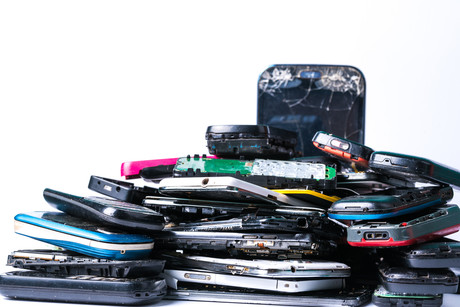E-waste growing three times faster than general waste

Electronic waste (e-waste) is growing up to three times faster than general municipal waste in Australia, according to Sustainability Victoria Acting CEO Jonathan Leake.
“Australians are high users of technology and among the largest generators of e-waste in the world,” said Leake.
“It’s estimated the country’s e-waste will increase more than 60% to a predicted 223,000 tonnes in 2023–24.”
In an effort to stem this worrying trend, Victorian Minister for Energy, Environment and Climate Change Lily D’Ambrosio has launched a $1.5 million public education and awareness campaign to help Victorians better understand e-waste and reduce the amount going to the state’s landfills. Run by Sustainability Victoria, the campaign aims to highlight the value of recycling electronic material ahead of an e-waste-to-landfill ban that takes effect on 1 July 2019.
“Recycling captures valuable metals like copper, silver, gold, aluminium and other metals, as well as plastics and glass, so they can be re-used in the next wave of technology rather than mining or making new materials,” Leake said.
Current practices show that at least 90% of a computer, television or mobile phone can be recovered and re-used. Victoria already has many places where some types of e-waste can be taken, but there is potential to expand the range of electrical, electronic and battery-powered items recycled and the number of collection points.
Victorian councils can also apply for $15 million in grants to upgrade or build collection and storage facilities in 130 areas where need has been identified. Funding applications close on 14 September.
Regulatory measures that will give effect to a ban on e-waste from landfill, under the Environment Protection Act 1970, were made on 28 June. They include amendments to existing statutory policies to include e-waste as a material banned from landfill, and one which specifies how e-waste should be managed safely.
The ban takes effect on 1 July 2019, allowing those who manage e-waste in Victoria to adapt to the new regulatory measures and for Victoria’s e-waste collection network, including state government-funded sites, to be operating.
Victorians interested in e-waste recycling can visit the campaign website at www.ewaste.vic.gov.au.
Circularity needed at scale for Aust building industry
Australia has the highest material footprint of the G20, more than 31 tonnes per person. Doubling...
Textile recycler BlockTexx wins Gold for sustainability
BlockTexx, a clean technology company that recovers polyester and cellulose from textiles and...
NSW passes legislation to mandate battery recycling
The passing of the Product Lifecycle Responsibility Bill in New South Wales is said to...










